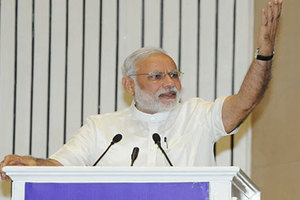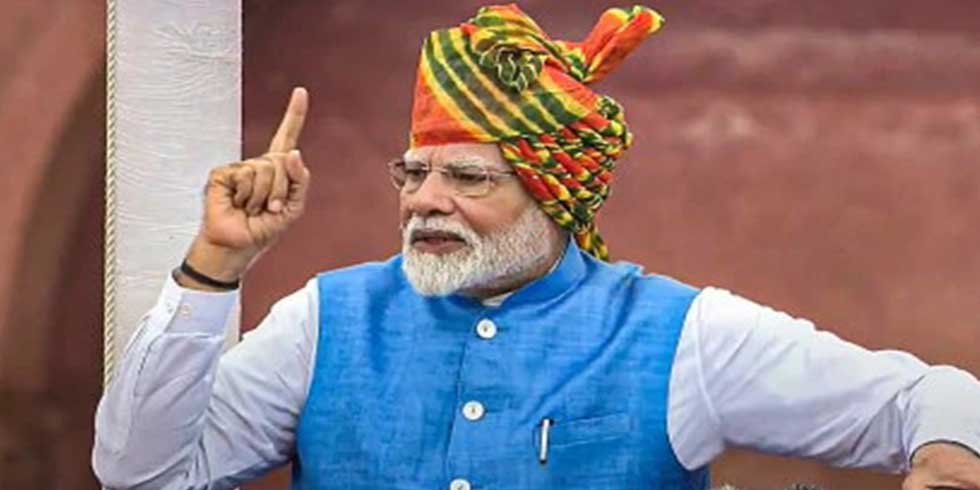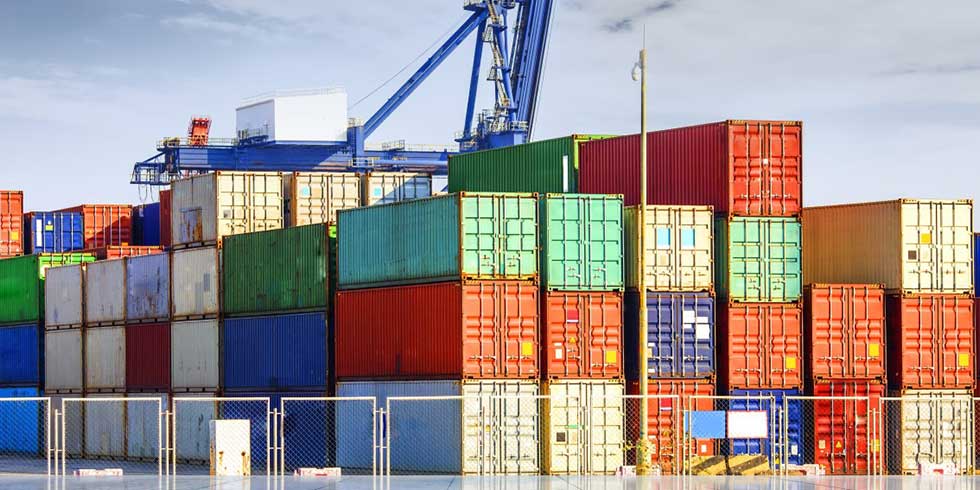Prime Minister Narendra Modi has visited all of India’s neighbours, barring Maldives in the past three years. His visit to Myanmar on 5-7 September will be his first bilateral State visit to the country. He had earlier visited Nay Pyi Daw in 2014 for the East Asia Summit. He will reach Myanmar after attending the BRICS summit from 3-5 September in Xiamen, China.
Modi’s visit has special significance as Myanmar is considered a key pillar in India’s Act East policy for greater integration with South East Asia. Though there have been fewer visits from New Delhi to Myanmar, India has hosted Myanmar’s top leaders in the past year after the Myanmar elections. Iconic leader and State Counselor, Daw Aung San Suu Kyi visited India for the BIMSTEC summit in October 2016. Her four-day visit was preceded by the state visit of Myanmar’s president U Htin Kyaw to India in August 2016.
The other senior leader from Myanmar to visit was Myanmar Army chief, Senior General Min Aung Hlaing, who paid an eight-day visit to India in July 2017. The armed forces continue to hold a dominating position in Myanmar’s polity despite the gradual move towards electoral democracy. The Myanmarese general called on Prime Minister Modi, Defence Minister Arun Jaitley and National Security Advisor Ajit Doval. During his discussions in India, the two sides agreed to scale up cooperation in counterinsurgency and trade. India has promised to support the modernisation of Myanmar’s armed forces. India is providing training to Myanmarese defence officials as well as some defence supplies.
India has strongly backed the Myanmar government over the Rohingya issue, which has drawn criticism from western government and human rights groups. India expressed serious concern at reports of recent violence and attacks in the Rakhine state last week. Condemning the attacks in “the strongest possible terms”, an official statement said: “We hope that the perpetrators of these crimes will be brought to justice and extend our strong support at this challenging moment” to the Myanmar government.
Myanmar is likely to reiterate its commitment not to allow its territory to be used by insurgents for anti-India activities. In June 2015, an Indian special forces operation cleared out an insurgent camp in the border region. Though Myanmar had cooperated with India on dealing with Indian insurgents the Myanmarese government had been severely embarrassed at Indian politicians public claims that Indian soldiers had crossed the border to target the insurgent camps. The subject had come up during Suu Kyi’s visit last year though both sides “reaffirmed their shared commitment to fight insurgent activity and the scourge of terrorism.”
Bilateral trade between India and Myanmar has been growing steadily reaching $1.5 billion in 2015-16. India is listed among Myanmar’s top five largest trading partners, with pulses and timber as the main exports to India. India is the seventh largest source of imports for Myanmar. However, India is far behind Myanmar’s two other neighbours, China and Thailand and does not match up to other countries like Australia, United Kingdom and Norway in making a visible presence in the Myanmarese market. The lack of basic infrastructure has hampered the border trade mechanism. Indian private sector has lagged behind in exploring the new opportunities in Myanmar as its economy has opened up to foreign investment.
At the same time, official policy in India has also to be sensitive to neighbouring countries. The government’s cap on imports of pulses this year due to the record domestic production has hit Myanmar producers. Earlier this month, the government issued directives to cap the import of pigeon pea (tuar dal) to 200,000 tonnes this year as well as a reduced quota for other pulses like mung and black gram. Last year, India had imported about 7 lakh tonnes of pigeon pea. Pulses are a major export item for Myanmar and India has traditionally been one of Myanmar’s main export markets for pulses. The Indian import restriction has been a big blow to the country’s pulse market.
India has committed $2 billion for development assistance to Myanmar, but projects have been slow in getting implemented. The Kaladan multi-modal transport project was the first major project undertaken by the Indian government in Myanmar. The Sittwe deep water port as part of the Kaladan project is now nearing completion.
Modi will travel to Nay Pyi Taw on 5 September and will hold discussions with Aung San Suu Kyi and also call on President U Htin Kyaw. He will then visit Yangon and Bagan. The bilateral visit should serve to give a boost to political and economic ties with a strategic eastern neighbour.








Add Comment